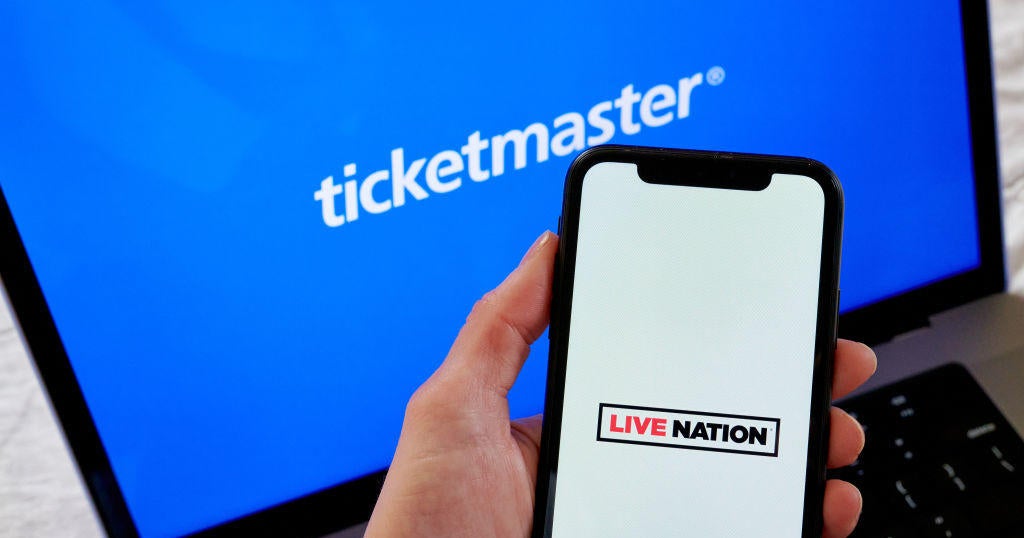Entertainment
Justice Department set to take antitrust action against Ticketmaster parent Live Nation

The Justice Department is set to file an antitrust lawsuit against entertainment conglomerate Live Nation as early as Thursday, multiple sources familiar with the matter confirmed to CBS News.
The federal government will be joined in its legal challenge by several state attorneys general. Prosecutors are expected to challenge the Ticketmaster parent company’s practices and could seek to force a change in how the company does business, the sources said. In many instances, when the Justice Department sues over antitrust issues, it seeks to get a judge to force divestments within a company or change how it operates.
The Justice Department declined to comment. Live Nation did not respond to a CBS News request for comment.
News of the antitrust action was first reported by the Washington Post.
The move comes after an investigation by the Justice Department’s antitrust division that spanned years. In 2022, CBS News confirmed the Justice Department had already been looking at the company and its Ticketmaster unit before the company’s disastrous mishandling of ticket sales for Taylor Swift’s Eras Tour.
In November 2022, Ticketmaster’s site crashed during a pre-sale period for the Eras Tour, sparking outrage from fans who waited hours to get tickets, only to be disappointed.
The department’s probe focused on whether Live Nation was abusing its market dominance in the ticket industry.
The Justice Department’s antitrust division contacted music venues and participants in the ticket industry to learn more about Live Nation’s methods, focusing on whether the company has had a monopoly over the industry, according to The New York Times, which first reported the investigation.
At a Senate hearing in January 2023, artists testified about the hold Live Nation had over them. Clyde Lawrence, of the band Lawrence, testified that Live Nation’s power lies in the fact that it’s the promoter, the venue and the ticket company.
“Because Live Nation owns the venue, fronts the money for the show and sells the tickets, they have outsized power when negotiating with artists,” he told the panel, offering an example: For one show, Lawrence set ticket prices at $30. After Ticketmaster added a 40% fee, fans paid $42 per ticket. And after paying for facility costs, the band made $12 per ticket — about half of which went to cover the costs of touring.
“That leaves us with $6 for an eight-piece band — pretax — and we also have to pay our own health insurance,” Lawrence said.
Long before Ticketmaster’s 2010 merger with Live Nation, Pearl Jam leveled a similar complaint against Ticketmaster before Congress in 1994, claiming the ticketing company’s exclusive contract with most of the country’s premiere venues gave artists and fans little to no choice when buying and selling tickets.
Pearl Jam tried to tour in venues not controlled by Ticketmaster, but couldn’t make it work. The band also sued Ticketmaster, but ultimately lost its battle. A group of ticket buyers also unsuccessfully sued Ticketmaster in the 1990s, claiming the company had monopolized the ticket-selling business, The Associated Press noted.
Clare Hymes and Irina Ivanova contributed to this report.







:max_bytes(150000):strip_icc()/roundup-writereditor-loved-deals-tout-f5de51f85de145b2b1eb99cdb7b6cb84.jpg)


